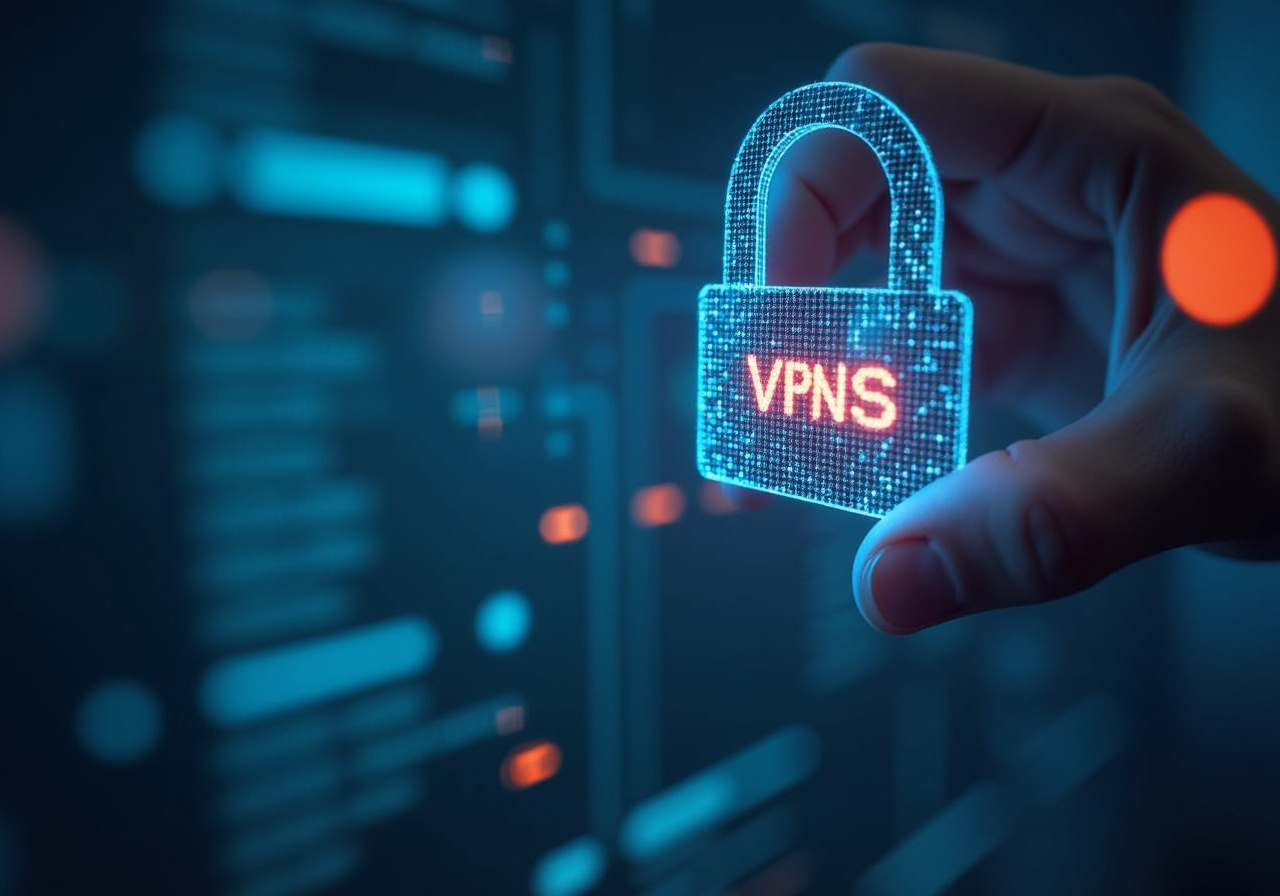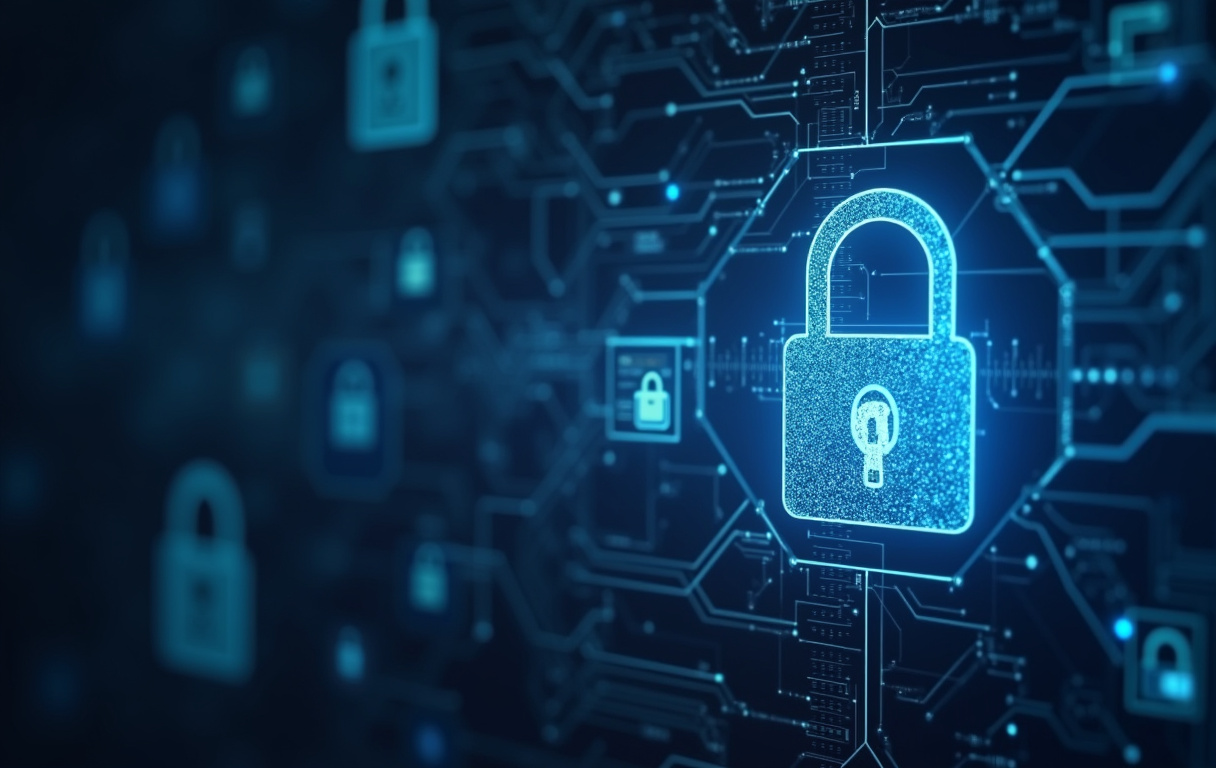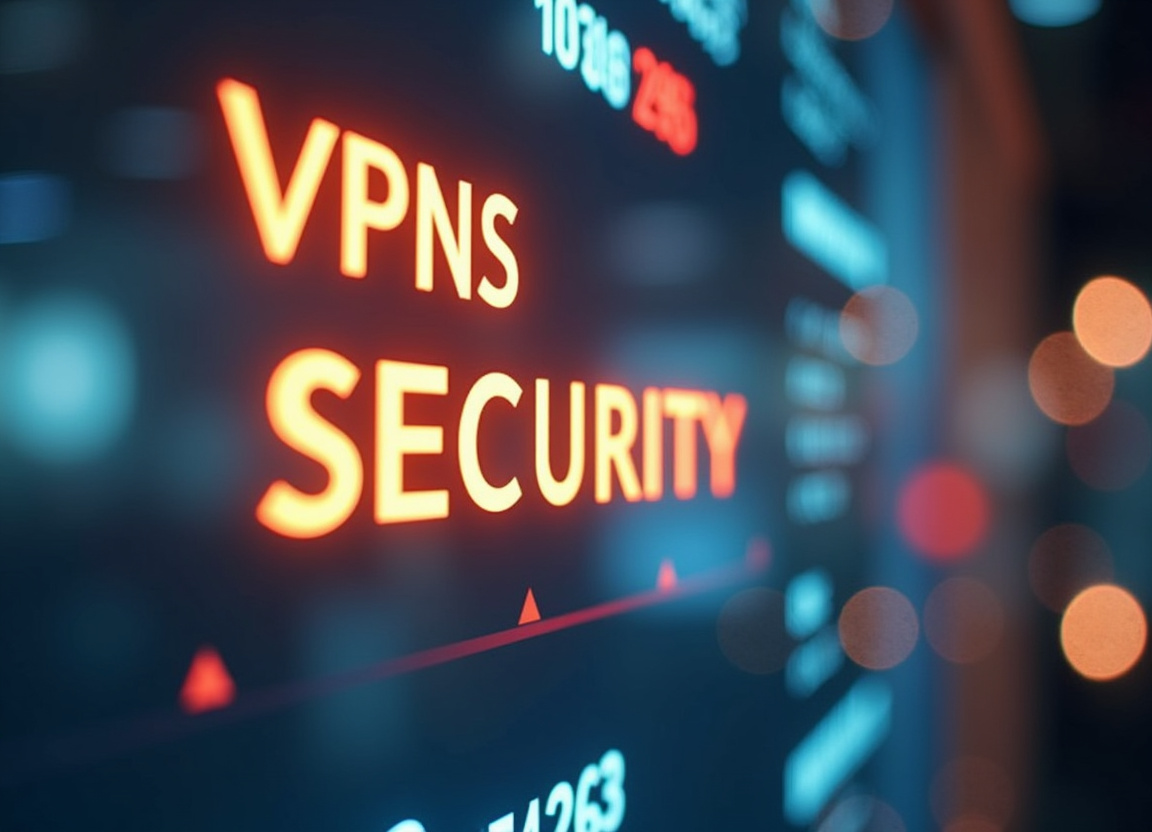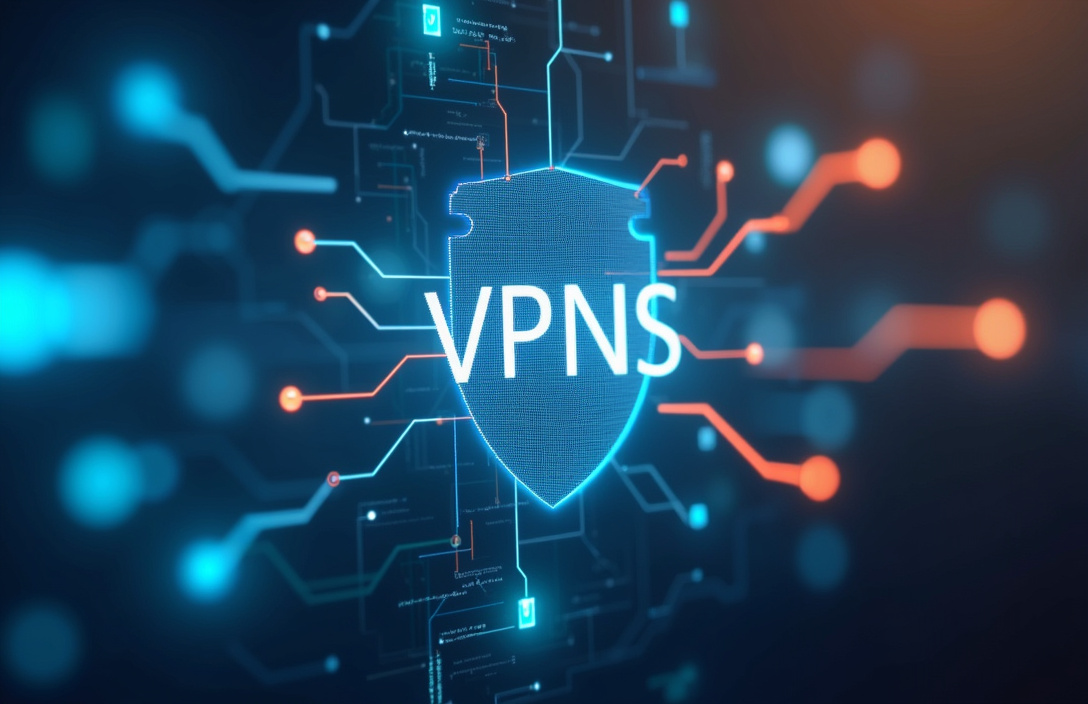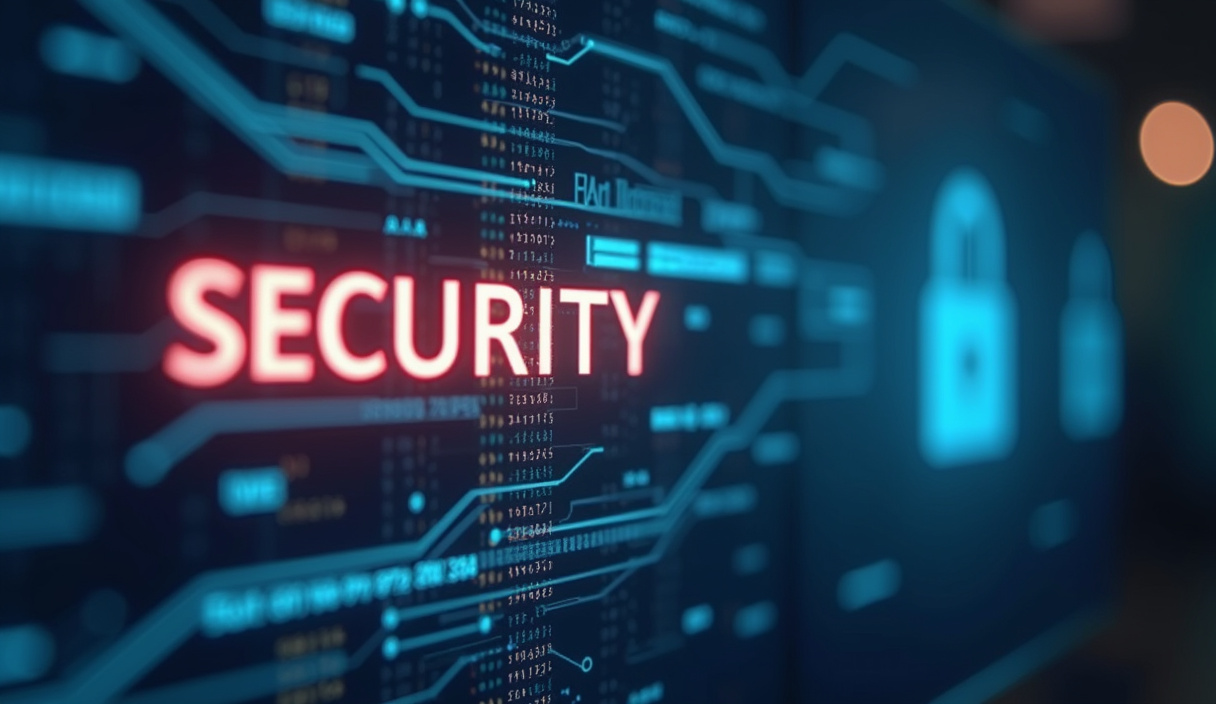VPN Security Protocols: What Users Should Know
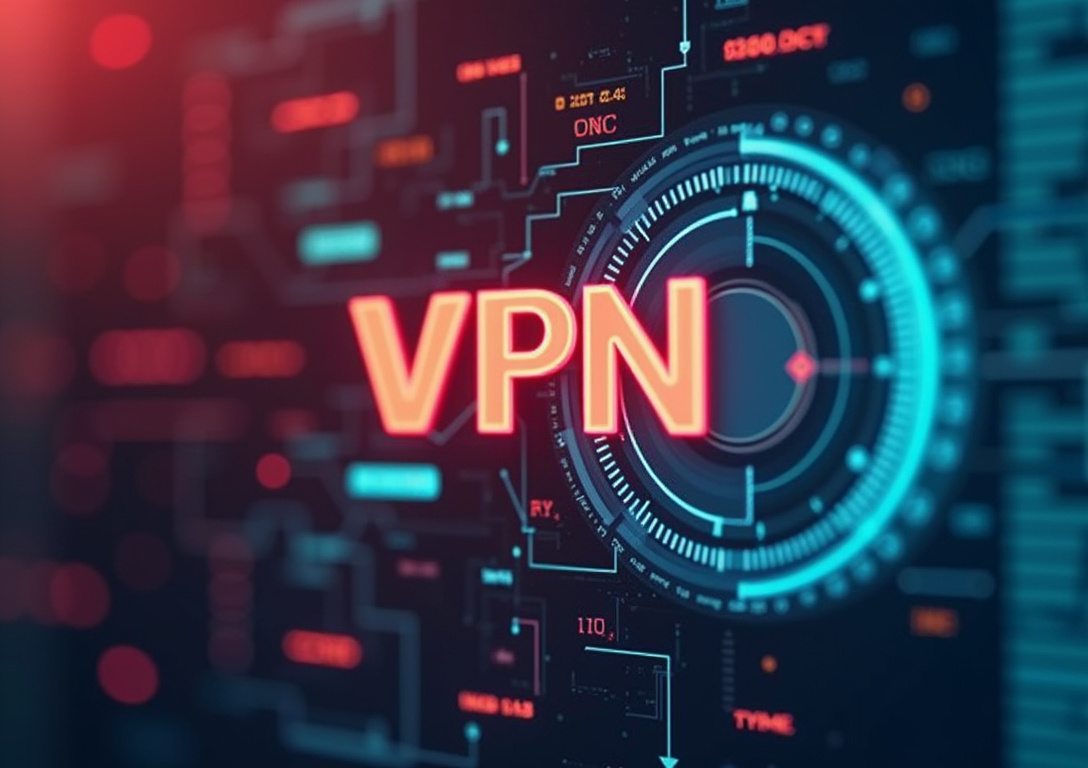
Table of Contents
VPN security protocols
In today's increasingly interconnected world, where data flows freely across borders and networks, the need for robust online security has never been more critical. Virtual Private Networks (VPNs) have emerged as a popular solution for individuals and organizations seeking to protect their online privacy and security. However, the effectiveness of a VPN hinges on the strength and type of it employs.
Understanding these is essential for making informed decisions about which VPN service to and ensuring adequate . This article delves into the crucial aspects of VPN security protocols, providing users with the knowledge they need to navigate the complex landscape of online privacy and select a VPN that truly safeguards their sensitive information. In essence, a VPN creates a secure, encrypted tunnel between your device and a remote server, masking your IP address and encrypting your internet traffic.
This process effectively shields your online activity from prying eyes, whether it's your internet service provider (ISP), government agencies, or malicious actors lurking on public Wi-Fi networks. The key to this protection lies in the underlying security protocols, which dictate how the data is encrypted, authenticated, and transmitted. Different protocols offer varying levels of security, speed, and compatibility, making it crucial to understand their strengths and weaknesses.
Choosing the right protocol can significantly impact your online experience, ensuring a balance between security and performance. Therefore, a basic understanding of what these protocols actually do is imperative. For example, some older protocols that were cutting edge at one point may now be vulnerable to attack and should be avoided if possible.
Other protocols may be very secure, but can negatively impact the speed of your internet connection, or potentially not work with all devices. It is also important to consider the logging policy of the VPN provider, and in what jurisdiction they are established. All of these factors combine to providing you with a solid level of VPN security, so failing to adequately consider these aspects may place you at risk.
In order to fully understand VPN protocols, it’s helpful to have a basic grasp of cryptography. Encryption is at the heart of all , this involves transforming plain text data into an unreadable format using an algorithm and a key. The stronger the encryption algorithm and the longer the key, the more difficult it is for unauthorized parties to decrypt the data.
Common encryption algorithms used in VPN protocols include Advanced Encryption Standard (AES), which is widely considered to be highly secure, and older algorithms such as Blowfish. Authentication is another critical component, as it verifies the identity of the parties involved in the VPN connection. This ensures that only authorized users can access the network and prevents man-in-the-middle attacks.
VPN protocols use various authentication methods, such as passwords, digital certificates, and pre-shared keys. A critical point to remember is the constant evolution of technology, and with that the constant evolution of hacking and security breaches. This means that VPN protocols are not static, they are always evolving and changing as time progresses.
To ensure you are maintaining the level of you need, it is important to stay on top of new developments, and to ensure your devices and software are updated to the latest available versions. This is also vital for the VPN software itself, to ensure it is taking advantage of the latest security enhancements. Furthermore, the key exchange process itself is an important element of the security.
This is how the initial secure connection is made, and any vulnerabilities here can undermine the entire security of the session. Therefore, it’s crucial to ensure that the protocols are constantly updated to make use of the most modern and robust encryption algorithms. Another thing to note is that can be affected by more than just the encryption protocol used.
For example, weak passwords used to access your device, or other malware on your device, can make a VPN connection completely worthless. It’s crucial to have a comprehensive view of security, with the VPN merely being one element of your overall protection. Therefore, a layered approach is best which combines use of a VPN with strong passwords, two-factor authentication, regular software updates, and vigilance around phishing emails.
All of these measures contribute to ensuring you maintain a high level of .
choose VPN
The security of a VPN connection depends heavily on the encryption algorithms and authentication methods used by its underlying protocols. To make an informed decision when you , it's crucial to understand the most common protocols and their key characteristics. One of the most prevalent is OpenVPN, an open-source protocol that has emerged as an industry standard due to its flexibility, security, and wide compatibility.
OpenVPN can be configured to use various encryption algorithms, including AES, and supports multiple authentication methods. Its open-source nature allows for continuous scrutiny and improvement by the security community, making it a highly trusted option. However, OpenVPN can be more complex to set up compared to some other protocols, requiring manual configuration on some devices.
This can present a challenge for less technically inclined users, though many VPN providers offer custom apps that simplify the process and automate the configuration. Despite this potential hurdle, the robust security features of OpenVPN make it a worthwhile choice for those prioritizing privacy. Another popular option is WireGuard, a relatively new protocol designed for speed and simplicity.
WireGuard utilizes state-of-the-art cryptography and a streamlined codebase, resulting in faster connection speeds and improved performance compared to older protocols like OpenVPN and IPsec. It is also considered to be more secure due to its modern encryption methods and smaller attack surface. However, WireGuard is still under active development, and its long-term security and stability remain to be seen.
While its design principles are promising, it's essential to stay updated on any potential vulnerabilities that may be discovered as the protocol matures. WireGuard's ease of use and high performance make it an attractive option for users who want a fast and without compromising on security. IPsec (Internet Protocol Security) is a suite of protocols used to secure IP communications.
It is often used in conjunction with other protocols, such as IKEv2 (Internet Key Exchange), to establish secure VPN connections. IPsec/IKEv2 is known for its stability, security, and wide compatibility, making it a popular choice for businesses and organizations. However, IPsec can be more complex to configure and may not perform as well as OpenVPN or WireGuard in some scenarios.
It is also often blocked by firewalls due to its widespread use. IKEv2 is generally considered superior when compared to other older IPsec protocols. Its resilience to network changes and its ability to quickly re-establish connections make it a reliable option for mobile users who frequently switch between Wi-Fi networks and cellular data.
PPTP (Point-to-Point Tunneling Protocol) is an older that was once widely used but is now considered to be insecure due to its known vulnerabilities. PPTP uses weak encryption and is susceptible to various attacks, making it unsuitable for protecting sensitive data. It is strongly recommended to avoid using PPTP whenever possible and services that offer more secure alternatives.
The main reason PPTP is so insecure is because many of the encryption protocols it utilises are older and have known vulnerabilities that hackers have learned to exploit. SSTP (Secure Socket Tunneling Protocol) is proprietary protocol developed by Microsoft. SSTP uses SSL/TLS encryption, the same technology used to secure websites, to create a secure VPN connection.
SSTP is known for its ability to bypass firewalls and its integration with Windows operating systems. However, SSTP is a closed-source protocol, which means its security cannot be independently verified. It may also be slower than other protocols like OpenVPN or WireGuard.
The fact that SSTP is closed source means that security researchers cannot easily audit it for issues and potential weaknesses. When selecting a VPN service, it is imperative to carefully consider the security protocols it offers. Prioritize VPNs that support OpenVPN, WireGuard, or IPsec/IKEv2, and avoid those that rely solely on PPTP or other outdated protocols.
The choice of protocol will ultimately depend on your specific needs and priorities. If security is paramount, OpenVPN is a reliable choice. If you require speed and simplicity, WireGuard may be more suitable.
IPsec/IKEv2 offers a good balance of security and stability, while PPTP should be avoided altogether. Understanding the characteristics of each protocol will empower you to make an informed decision and service that provides the level of you require.
VPN security protocols
Beyond selecting the right , there are other crucial factors to consider when choosing a VPN service to ensure maximum . One of the most important is the VPN provider's logging policy. A reputable provider should have a strict no-logs policy, meaning they do not collect or store any information about your online activity, including browsing history, IP addresses, and connection timestamps.
This ensures that your data remains private and cannot be handed over to third parties, such as government agencies or copyright holders. To verify a provider's no-logs policy, look for independent audits conducted by reputable security firms. These audits provide an unbiased assessment of the provider's logging practices and can give you confidence in their commitment to privacy.
It is also important to carefully review the provider's terms of service and privacy policy to understand exactly what data they collect and how they use it. Although a provider claims to have a no-logs policy, the actual wording of the legal documentation might contradict this claim. Jurisdiction is another critical factor to consider.
The legal jurisdiction in which a VPN provider is based can have a significant impact on your privacy. Some countries have strict data retention laws that require providers to store user data for a certain period of time. Other countries are part of intelligence-sharing alliances, such as the 14 Eyes, which means they may share user data with other member states.
To maximize your , providers that are based in privacy-friendly jurisdictions, such as Switzerland, Panama, or the British Virgin Islands. These countries have strong privacy laws and are not part of any intelligence-sharing alliances, which helps to safeguard your data from government surveillance. The geographical distribution of a VPN provider's servers is also important.
A provider with servers in multiple locations around the world allows you to connect to a server that is geographically close to you, which can improve your connection speed and reduce latency. It also allows you to bypass geo-restrictions and access content that is only available in certain countries. However, keep in mind that connecting to a server in a country with weak privacy laws may expose your data to greater risk.
Another aspect to consider is the kill switch feature. A kill switch is a security mechanism that automatically disconnects your internet connection if the VPN connection drops unexpectedly. This prevents your data from being exposed if the VPN fails for any reason, such as a server outage or a network interruption.
A kill switch is an essential feature for anyone who values their privacy and wants to ensure that their data is always protected. Leak protection is also vital. Even with a and a kill switch, your data may still be vulnerable to leaks, such as DNS leaks or WebRTC leaks.
DNS leaks occur when your DNS requests are not routed through the VPN server, revealing your actual IP address to your ISP. WebRTC leaks occur when your browser uses WebRTC technology to establish direct connections with websites, bypassing the VPN and exposing your IP address. To prevent these leaks, providers that offer built-in leak protection features.
You can also test your VPN connection for leaks using online tools. Finally, consider the pricing and payment options offered by different VPN providers. While free VPN services may seem tempting, they often come with hidden costs, such as data logging, malware infections, and intrusive advertising.
It is generally recommended to which is a paid service. Paid VPN services offer better security, performance, and privacy features. Look for providers that offer a variety of payment options, including cryptocurrency, to further protect your anonymity.
When choosing a VPN plan, consider your budget and your specific needs. Some providers offer different tiers of service with varying features and bandwidth limits.
VPN security
Maintaining strong requires proactive measures beyond the initial setup. Regularly updating your VPN client and operating system is crucial to patch security vulnerabilities and ensure compatibility with the latest protocols. Software updates often include fixes for newly discovered security flaws that could be exploited by attackers.
Neglecting these updates can leave your system vulnerable, even if you're using a strong VPN protocol. Furthermore, staying informed about emerging threats and vulnerabilities is essential. Security news websites and blogs regularly publish articles about new vulnerabilities discovered in VPN protocols and software.
Monitoring these sources can help you identify potential risks and take appropriate action to mitigate them. For example, if a new vulnerability is discovered in a specific VPN protocol, you may want to switch to a different protocol until a patch is available. Regularly scanning your device for malware is also crucial.
Malware can compromise your VPN connection and expose your data to attackers. Some types of malware can even disable your VPN or redirect your traffic through malicious servers. Using a reputable antivirus program and performing regular scans can help detect and remove malware before it can compromise your security.
It's also important to be cautious about the websites you visit and the files you download. Visiting malicious websites or downloading infected files can expose your device to malware and other threats. Be wary of suspicious links and avoid downloading files from untrusted sources.
Using a browser extension that blocks malicious websites and phishing attempts can provide an additional layer of . In addition to technical measures, it's important to practice good online hygiene. This includes using strong, unique passwords for all of your online accounts, enabling two-factor authentication whenever possible, and being wary of phishing emails and other social engineering attacks.
Social engineering attacks often try to trick you into revealing sensitive information, such as your passwords or credit card numbers. Being aware of these tactics can help you avoid falling victim to them. Furthermore, consider using a password manager to generate and store strong, unique passwords for all of your online accounts.
A password manager can also help you avoid reusing passwords, which is a common security mistake. Enabling two-factor authentication adds an extra layer of security to your accounts by requiring you to enter a code from your smartphone or another device in addition to your password. This makes it much more difficult for attackers to access your accounts, even if they have your password.
Periodically reviewing your VPN settings is also a good practice. Make sure that your are configured correctly and that you are using the strongest encryption algorithms available. You may also want to experiment with different settings to optimize your connection speed and security.
For example, you may be able to improve your connection speed by switching to a different server location or by disabling certain features, such as leak protection. Another consideration is the use of multi-hop VPN connections, this involves connecting to a series of VPN servers in different locations to further obfuscate your IP address and encrypt your traffic. This can make it more difficult for attackers to trace your online activity back to you.
However, multi-hop connections can also slow down your connection speed, so it's important to weigh the benefits against the performance impact. Finally, educating yourself about the latest threats and best practices is an ongoing process. The online security landscape is constantly evolving, and new threats are emerging all the time.
By staying informed and proactive, you can ensure that your data remains protected. To may seem like an overwhleming task but by following the abovementioned tips you should be able to make the right choise.
VPN security
In conclusion, navigating the complexities of requires a comprehensive understanding of protocols, provider practices, and proactive security measures. Choosing the right VPN is not simply about selecting a service with catchy marketing; it demands a careful evaluation of its underlying security architecture and commitment to user privacy. By prioritizing VPNs that support robust like OpenVPN, WireGuard, or IPsec/IKEv2, users can establish a strong foundation for .
However, the choice of protocol is just the first step. A reputable VPN provider should also adhere to a strict no-logs policy, operate under a privacy-friendly jurisdiction, and offer essential security features such as a kill switch and leak protection. Verifying these aspects through independent audits and careful review of legal documentation is crucial to ensure that the provider's claims align with its actual practices.
Moreover, maintaining strong is an ongoing process that requires proactive measures. Regularly updating your VPN client and operating system is essential to patch security vulnerabilities and ensure compatibility with the latest protocols. Staying informed about emerging threats and vulnerabilities can help you identify potential risks and take appropriate action.
Practicing good online hygiene, such as using strong passwords, enabling two-factor authentication, and being wary of phishing attacks, is also crucial to protect your data from compromise. Ultimately, the most effective approach to VPN security involves a layered approach that combines technical measures with user awareness and responsible online behavior. By understanding the nuances of VPN protocols, carefully evaluating VPN providers, and implementing proactive security measures, users can significantly enhance their online privacy and security.
It's also important to remember that no VPN is foolproof, and there is always a risk of data exposure. However, by taking the necessary precautions, you can minimize this risk and protect your sensitive information from prying eyes. As technology continues to evolve, so too will the threats to online privacy and security.
Staying informed about the latest developments in VPN technology and security best practices is essential to maintain a strong defense against these threats. Consider subscribing to security newsletters and blogs, following security experts on social media, and participating in online security forums to stay up-to-date on the latest trends and vulnerabilities. By continuously learning and adapting, you can ensure that your remains effective in the face of evolving threats.
In the end, the decision to comes down to individual needs and priorities. Some users may prioritize speed and performance, while others may prioritize security and privacy. By carefully considering your own needs and priorities, and by following the guidance in this article, you can make an informed decision and select a VPN that provides the level of you require.
Remember, online privacy and security are not just about protecting your personal information; they are also about protecting your freedom of expression, your access to information, and your ability to participate in a democratic society. By taking control of your online privacy and security, you can empower yourself to navigate the digital world with confidence and safeguard your fundamental rights. By taking the time to thoroughly research and understand your VPN options, you can ensure that you are making the best choice for your individual needs and maintaining the highest possible level of online .
Stay Updated
Get the latest VPN news, tips, and exclusive deals to your inbox.
